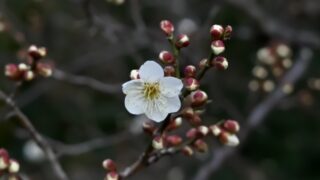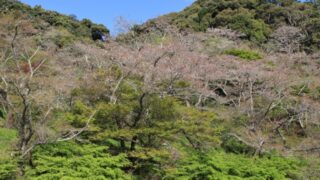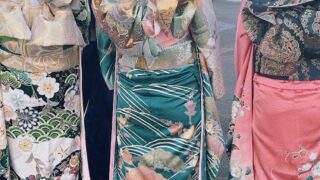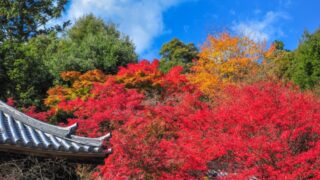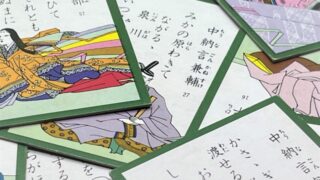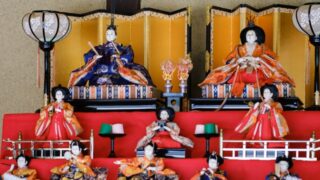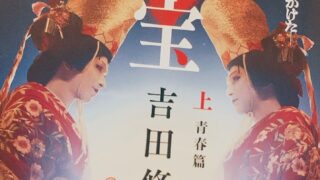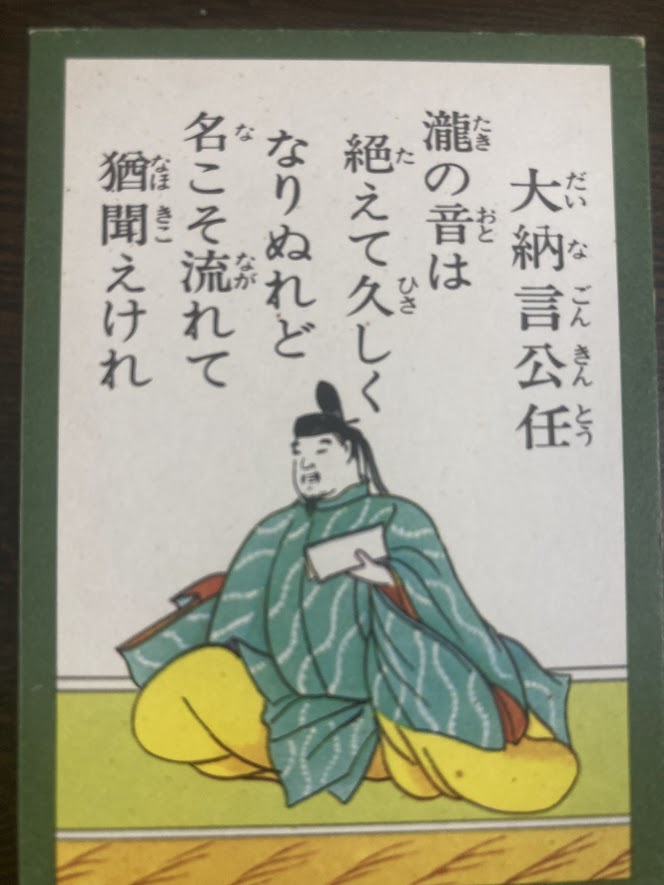滝の音は 絶えて 久しく なりぬれど 名こそ 流れて 猶きこえけれ
大納言公任 (966-1041)
百人一首 五十五番 雑
「千載集」
かな
たきのおとは たえてひさしく なりぬれど なこそ ながれて なほきこえけれ
「なほきこえけれ」は、「なおきこえけれ」と読みます。
現代語訳
(大覚寺に作られた)滝は、水の音が聞こえなくなってから久しいけれども、その名前は今でも耳にするなあ。
(The waterfall that was made at Daikakuji Temple) — The sound of its water has not been heard for a long time, but its name still reaches the ears even now.
昔は有名で多くの人でにぎわっていたところ、たくさんありますね。そこに人が行かなくなってから長い時間がたったけれども、今でも「あれはよかったですね」という話を聞くことがあります。そういう瞬間を詠んだ歌です。
There are many places that used to be famous and crowded with many people. Though a long time has passed since people stopped going there, we sometimes hear people say, “That place was wonderful, wasn’t it?”
This poem expresses a moment like that.
この歌の作者、藤原公任は、11世紀前後の貴族が最も栄えた時代に生きた人物です。この時代に「枕草子」や「源氏物語」が生まれています。藤原公任はこの時代の有名な歌人で、この歌の他にも多くの歌を残しています。しかし、若いころに目指していた政治の世界では出世することができず、政治の世界から距離をおきます。和歌だけではなく、漢詩、音楽にも優れた公任ですが、芸術の世界では負けないという意地も感じる人物です。このような背景を知ると、歌に違う味わいも生まれてきます。
The author of this poem, Fujiwara no Kintō, lived around the 11th century, a time when the aristocracy was at its most prosperous. It was during this era that “The Pillow Book” and “The Tale of Genji” were born.
Fujiwara no Kintō was a well-known poet at that time, and he left behind many poems in addition to this one.
However, in the political world, which he aimed for in his youth, he was not able to succeed, and he distanced himself from politics.
Kintō was not only gifted in waka poetry but also had talent in Chinese poetry and music. He is a person in whom we can also sense a strong will not to be defeated in the world of art.
When we understand this kind of background, the poem gives off a different flavor.
言葉
~て久しい(N2)
~してから長い時間がたったという意味です。It means “a long time has passed since ~.”
例 彼女とは会わなくなって久しい。
国を離れて久しい。
けれども
「けれども・けども・けど・だけど」、全部意味は同じです。会話では「けれど・けど」をよく使います。「だけど」は、文の途中に使う時には「名詞+だけど」「な形容詞+だけど」という使い方をします。
“けれども”, “けども”, “けど”, and “だけど” all have the same meaning.
In conversation, “けれど” and “けど” are often used.
“だけど” is used in the middle of a sentence like this: “noun + だけど” or “な-adjective + だけど.”
例 雨が降っていますが、試合はあるそうです。
雨が降ってるけれど、試合はあるって。
雨、降ってるけど、試合はあるって。
雨だけど、試合はあるって。
耳にする
聞こえてくる、「偶然」聞こえる、「見る意思はないけど自然に」情報が入ってくる、という意味です。
これと似た言葉で「目にする」という言葉もあります。これも「偶然」「見る意思はないけど自然に見える」という意味です。
It means “to come to hear (by chance).” Information comes naturally without meaning to listen.
A similar word is “目にする,” which means “to see (by chance)” or “to see something without intending to look.”
例 会社のロビーで、上司の悪い噂を耳にした。
最近、ワーケーションという言葉をよく耳にします。
最近この広告をよく目にする。
日本では梅雨に入りました。最近は滝のようなどしゃ降りの雨が増えているように感じます。あまり出かけられない日が続いています。
In Japan, the rainy season has started. Lately, I feel like there’s been more heavy rain, like a waterfall. There are many days when we can’t go out.
今日もここまで読んでくれてありがとうございました。
令和七年六月十六日

